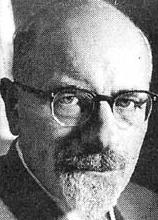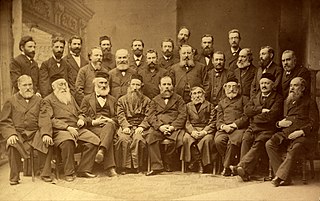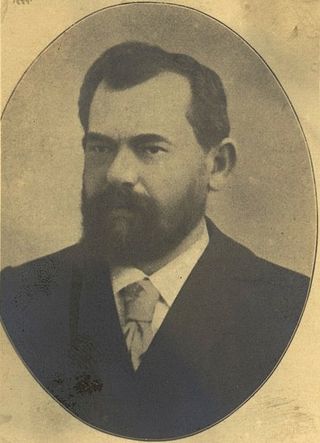Antisemitism is hostility to, prejudice towards, or discrimination against Jews. This sentiment is a form of racism, and a person who harbours it is called an antisemite. Though antisemitism is overwhelmingly perpetrated by non-Jews, it may occasionally be perpetrated by Jews in a phenomenon known as auto-antisemitism. Primarily, antisemitic tendencies may be motivated by negative sentiment towards Jews as a people or by negative sentiment towards Jews with regard to Judaism. In the former case, usually presented as racial antisemitism, a person's hostility is driven by the belief that Jews constitute a distinct race with inherent traits or characteristics that are repulsive or inferior to the preferred traits or characteristics within that person's society. In the latter case, known as religious antisemitism, a person's hostility is driven by their religion's perception of Jews and Judaism, typically encompassing doctrines of supersession that expect or demand Jews to turn away from Judaism and submit to the religion presenting itself as Judaism's successor faith—this is a common theme within the other Abrahamic religions. The development of racial and religious antisemitism has historically been encouraged by anti-Judaism, though the concept itself is distinct from antisemitism.

Zionism is a nationalist movement that emerged in the 19th century to enable the establishment of a homeland for the Jewish people in Palestine, a region roughly corresponding to the Land of Israel in Jewish tradition. Following the establishment of Israel, Zionism became an ideology that supports "the development and protection of the State of Israel".

Isaac Deutscher was a Polish Marxist writer, journalist and political activist who moved to the United Kingdom before the outbreak of World War II. He is best known as a biographer of Leon Trotsky and Joseph Stalin and as a commentator on Soviet affairs. His three-volume biography of Trotsky was highly influential among the British New Left in the 1960s and 1970s.
This is a partial timeline of Zionism in the modern era, since the start of the 16th century.

Asher Zvi Hirsch Ginsberg, primarily known by his Hebrew name and pen name Ahad Ha'am, was a Hebrew journalist and essayist, and one of the foremost pre-state Zionist thinkers. He is known as the founder of cultural Zionism. With his vision of a Jewish "spiritual center" in Eretz Israel, his views regarding the purpose of a Jewish state contrasted with those of prominent figures within the Zionist movement such as Theodor Herzl, the founder of political Zionism. Unlike Herzl, Ahad Ha'am strived for "a Jewish state and not merely a state of Jews".

Nathan Birnbaum was an Austrian writer and journalist, Jewish thinker and nationalist. His life had three main phases, representing a progression in his thinking: a Zionist phase ; a Jewish cultural autonomy phase, which included the promotion of the Yiddish language; and a religious phase, when he turned to Orthodox Judaism and became staunchly anti-Zionist.

Leon Pinsker was a physician and Zionist activist.
The Lovers of Zion, also Hovevei Zion or Hibbat Zion, were a variety of proto-Zionist organizations founded in 1881 in response to the Anti-Jewish pogroms in the Russian Empire and were officially constituted as a group at a conference led by Leon Pinsker in 1884.
Jewish political movements refer to the organized efforts of Jews to build their own political parties or otherwise represent their interest in politics outside the Jewish community. From the time of the siege of Jerusalem by the Romans to the foundation of Israel the Jewish people had no territory, and, until the 19th century they by-and-large were also denied equal rights in the countries in which they lived. Thus, until the 19th century effort for the emancipation of the Jews, almost all Jewish political struggles were internal, and dealt primarily with either religious issues or issues of a particular Jewish community.
"On the Jewish Question" is written as a response by Karl Marx to then-current debates over the so called the Jewish question. Marx wrote the piece in 1843, and it was first published in Paris in 1844 under the German title "Zur Judenfrage" in the Deutsch–Französische Jahrbücher.
The First Aliyah, also known as the agriculture Aliyah, was a major wave of Jewish immigration (aliyah) to Ottoman Syria between 1881 and 1903. Jews who migrated in this wave came mostly from Eastern Europe and from Yemen, stimulated by pogroms and violence against the Jews. An estimated 25,000 Jews immigrated. Many of the European Jewish immigrants during the late 19th-early 20th century period gave up after a few months and went back to their country of origin, often suffering from hunger and disease.

Theodor Herzl was an Austro-Hungarian Jewish journalist and political activist who was the father of modern political Zionism. Herzl formed the Zionist Organization and promoted Jewish immigration to Palestine in an effort to form a Jewish state.
As an organized nationalist movement, Zionism is generally considered to have been founded by Theodor Herzl in 1897. However, the history of Zionism began earlier and is intertwined with Jewish history and Judaism. The organizations of Hovevei Zion, held as the forerunners of modern Zionist ideals, were responsible for the creation of 20 Jewish towns in Palestine between 1870 and 1897.
The negation of the Diaspora is a central assumption in many currents of Zionism. The concept encourages the dedication to Zionism and it is used to justify the denial of the feasibility of Jewish emancipation in the Diaspora. Life in the Diaspora would either lead to discrimination and persecution or to national decadence and assimilation. A more moderate formulation says that the Jews as a people have no future without a "spiritual center" in the Land of Israel.

Isaac (Yitzhak) Rülf was a Jewish teacher, journalist and philosopher. He became widely known for his aid work and as a prominent early Zionist.
This timeline of anti-Zionism chronicles the history of anti-Zionism, including events in the history of anti-Zionist thought.

The Katowice Conference was a convention of Hovevei Zion groups from various countries held in Kattowitz, Germany in November, 1884. It was assembled to address the need of a Jewish state and to develop a plan for the creation of a Jewish state. The original date for the conference was chosen to coincide with the 100th anniversary of the birth of Moses Montefiore.
Am Olam was a movement among Russian Jews to establish agricultural colonies in America. The name means "Eternal People" and is taken from the title of an essay by Peretz Smolenskin. It was founded in Odessa in 1881 by Mania Bakl and Moses Herder, who called for the creation of Socialist agricultural communities in the United States.
This timeline of antisemitism chronicles the acts of antisemitism, hostile actions or discrimination against Jews as a religious or ethnic group, in the 19th century. It includes events in the history of antisemitic thought, actions taken to combat or relieve the effects of antisemitism, and events that affected the prevalence of antisemitism in later years. The history of antisemitism can be traced from ancient times to the present day.

Yehudah Leib ha-Levi Levin, also known by the acronyms Yehalel and Yehalal, was a Hebrew socialist maskilic Hebrew poet, writer, and publicist. His poems were the first to introduce socialist themes into Hebrew literature.








